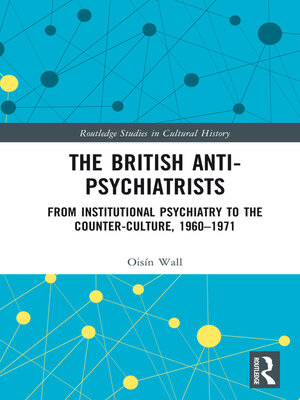The British Anti-Psychiatrists
ebook ∣ From Institutional Psychiatry to the Counter-Culture, 1960-1971 · Routledge Studies in Cultural History
By Oisín Wall

Sign up to save your library
With an OverDrive account, you can save your favorite libraries for at-a-glance information about availability. Find out more about OverDrive accounts.
Find this title in Libby, the library reading app by OverDrive.



Search for a digital library with this title
Title found at these libraries:
| Library Name | Distance |
|---|---|
| Loading... |
The British anti-psychiatric group, which formed around R.D. Laing, David Cooper, and Aaron Esterson in the 1960s, burned bright, but briefly, and has left a long legacy. This book follows their practical, social, and theoretical trajectory away from the structured world of institutional psychiatry and into the social chaos of the counter-culture. It explores the rapidly changing landscape of British psychiatry in the mid-Twentieth Century and the apparently structureless organisation of the part of the counter-culture that clustered around the anti-psychiatrists, including the informal power structures that it produced.
The book also problematizes this trajectory, examining how the anti-psychiatrists distanced themselves from institutional psychiatry while building links with some of the most important people in post-war psychiatry and psychoanalysis. The anti-psychiatrists bridged the gap between psychiatry and the counter-culture, and briefly became legitimate voices in both. Wall argues that their synthesis of disparate discourses was one of their strengths, but also contributed to the group's collapse.
The British Anti-Psychiatrists offers original historical expositions of the Villa 21 experiment and the Anti-University. Finally, it proposes a new reading of anti-psychiatric theory, displacing Laing from his central position and looking at their work as an unfolding conversation within a social network.







